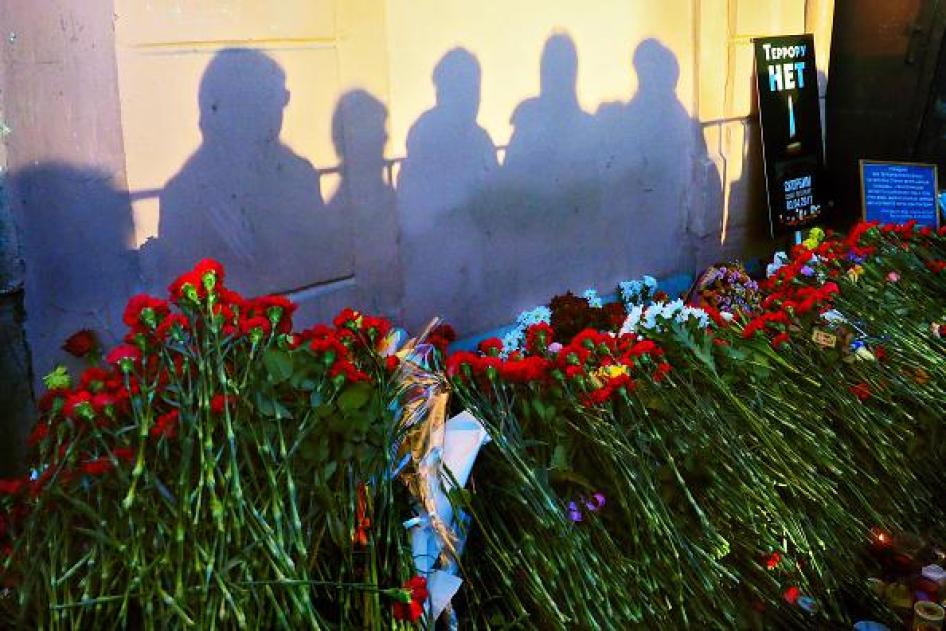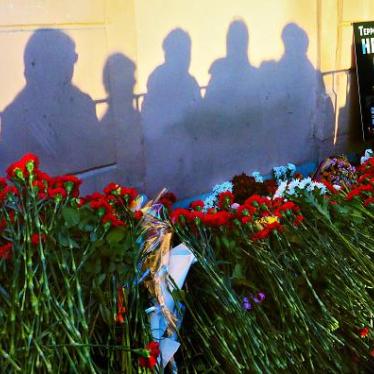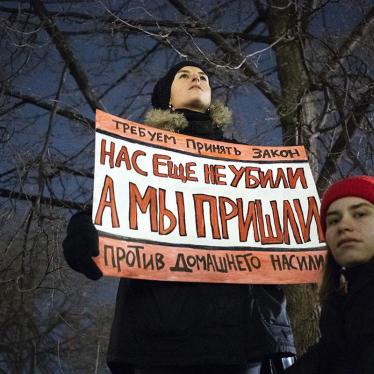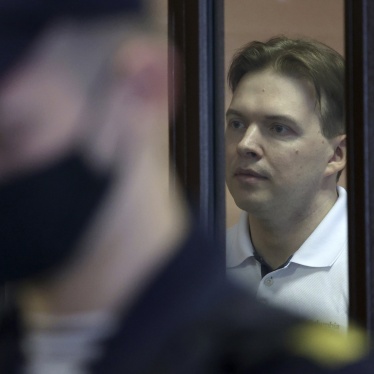Yesterday, a court in St. Petersburg found 11 people responsible for a devastating suicide bombing on the city metro, handing down sentences ranging from 19 years to life imprisonment.
The attack, in April 2017, took 16 lives including the bomber’s, and 100 were wounded. The long-awaited judgement, however, is clouded by allegations that authorities trumped-up evidence against those convicted, all of them of Central Asian origin. Some defendants alleged torture.
In a December 2017 report, Human Rights Watch told the story of Abror Azimov, now sentenced to life in prison as the key organizer of the attack, and Akram Azimov, sentenced to 28 years in a high security prison. The Azimov brothers provided credible accounts of torture in a secret detention center apparently run by the Federal Security Service (FSB) in or near Moscow.
Human Rights Watch interviewed their relatives and lawyers, reviewed court documents, media reports, Russian government statements, and FSB videos purporting to show their arrests.
In a statement to his lawyer in May 2017, Arbor Azimoz said:
They attached me to an iron pipe and immediately started to beat me in the stomach and kidney area and the head.… They took off my shoes and socks and tied a wire to my left foot, pinned a clothespin to the toe of my right foot and started to give me electric shocks. I answered the truth to their question, but the truth didn’t satisfy them; I shouted that… I am ready to take all the blame and to record it on video.
Akram Azimov alleged that FSB agents kidnapped him from Osh, Kyrgyzstan, forcibly transported him to Moscow, and tortured him for three days at the same secret prison as his brother, whose cries he could hear. The torture included waterboarding, electroshocks to his genitals, and severe beatings. On the third day, the agents drove him to a site in the outskirts of Moscow and videotaped his staged arrest.
Instead of effectively investigating these allegations, authorities threatened to disbar one of the brothers’ lawyers. They also arbitrarily deported the Azimov’s relatives, withdrawing their Russian citizenship.
The failure to conduct an official probe into alleged fabrication of evidence and torture violates the accused’s rights and is an affront to the St. Petersburg attack victims and their families, who deserve to know whether justice was genuinely served.








